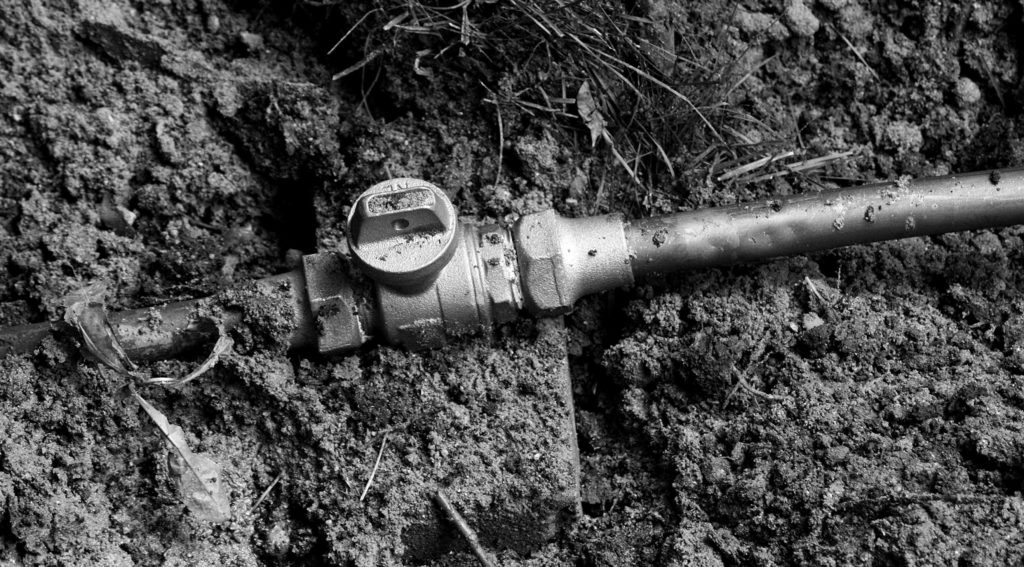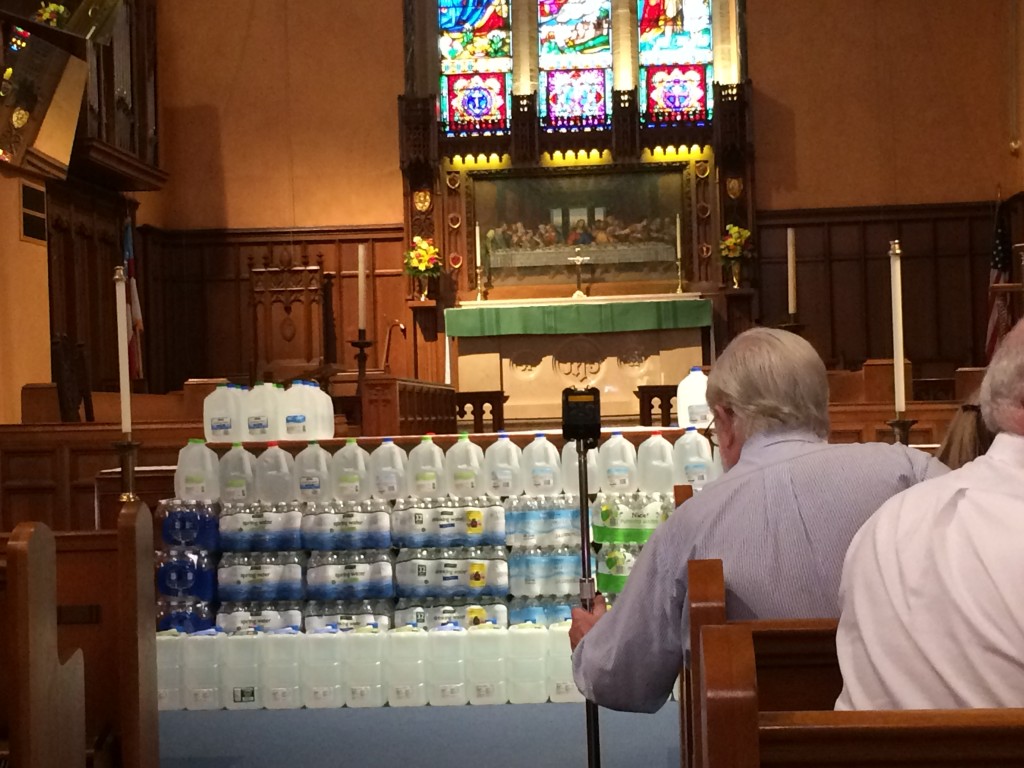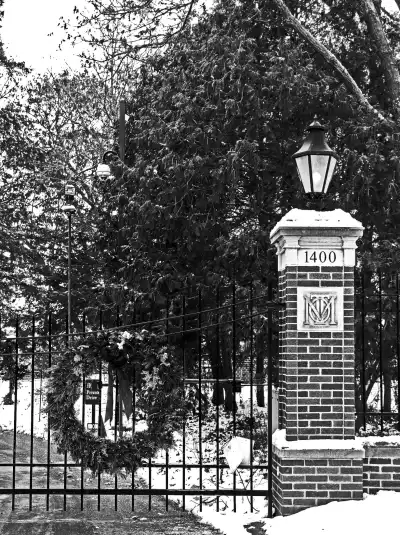By Meghan Christian
A total of 18,313 water service lines have been investigated to date as a part of Flint Mayor Karen Weaver’s Flint Action Sustainability Team (FAST) Start Pipe Replacement Program, putting the project a year ahead of schedule, the Mayor announced to roughly 30 members of the press, residents, and city employees at a press conference today.
Some of those in attendance included First and Second Ward Councilpersons Eric Mays and Maurice Davis; Pastor Dan Scheid from St. Paul’s Episcopal Church; and Director of Public Works Robert Binscik.
Pipe Replacement
The FAST Start pipe replacement program began in March of 2016 and was organized into six phases, running through 2019. The City is currently completing Phase V of the program.

Pipe replacement in Civic Park, July 2017 (Photo by Ed Custer)
According to a Dec. 3 press release sent by Flint Public Information Officer Candice Mushatt, the majority of the pipes excavated since April have been copper, not lead and/or galvanized.
Overall, to date, Mushatt said, service lines to 7,707 homes have been identified as lead and/or galvanized and have been replaced, including 1,479 homes found so far this year.
Weaver also discussed funding for the remainder of the FAST Start program. She summarized that due to a court settlement in a case filed by the Concerned Pastors for Social Action, approximately $97 million came to the City to continue financing pipe replacement activities of 18,000 pipes in high-priority areas.
These “hot spots” were “areas with a high concentration of kids, the homes were older,” which increased the likelihood of finding lead or galvanized service lines. As part of the settlement, the City was responsible for investigating 6,000 pipes per year for three years. According to Weaver, the City has surpassed that goal.
“They made that ruling in 2017 and they gave us until December 2019 to get that accomplished and we are here today because we have surpassed that,” Weaver said.
But the City isn’t stopping there. According to Weaver, “We’re going to keep going because one of the things we have said is, we want to be sure we have addressed all of the lead and galvanized lines.”
“We never want to put profit over the health and well-being over the Flint community ever again,” she added, addressing that now that the “hot spots” have been taken care of, other areas can be investigated even if they are newer.
Post-pipe replacement restoration
According to Weaver, the City hopes to be able to shift focus from pipe replacement to restoration in Spring, 2019 with all projects completed sometime in July of next year. “I would hope – some of it is dependent on the weather – but we would like to be done by sometime in July,” Weaver said.
Weaver specifically touched on lawn restoration. “We want lawns to be restored because I know people have taken pride in their homes and pride in having things look nice,” Weaver said, “and that’s what we want to go back to and make sure we’ve fixed everything.” Restoration efforts will also include some street restoration.
Excited, but cautious: keep using filters, bottled water
After calling Dec. 4 a “day of celebration” for Flint and the pipe replacement program, Weaver urged all residents to remain on bottled and filtered water while construction is still being completed, despite the fact that Flint water is testing better.

Water donations at St. Paul’s Episcopal Church, 2016
“Stay on bottled and filtered water because…the EPA [Environmental Protection Agency] has said when you have the amount of construction going on that we have going on, you still have a public health threat,” Weaver explained.
“We probably have another 10 to 12,000 pipes we’re going to look at before we say we have completed this project, but then what we want to do is test the water…for a period of time to give people the comfort that they need,” Weaver added.
She also added that until the medical community has the chance to also do testing on the water and declare it safe, she will not be drinking unfiltered water. “After we do finish with those replacements, I want to sit down with the medical community and see how much testing they will deem as necessary before they sign off,” Weaver said.
“I want people to still get their water tested,” Weaver urged, “because we are still building trust in the water.”
A full video of the press conference is available for viewing on the City of Flint’s Facebook page: https://www.facebook.com/CityofFlintMI/videos/480024875738197/
EVM Managing Editor Meghan Christian can be reached at meghan.christian22@gmail.com.








You must be logged in to post a comment.